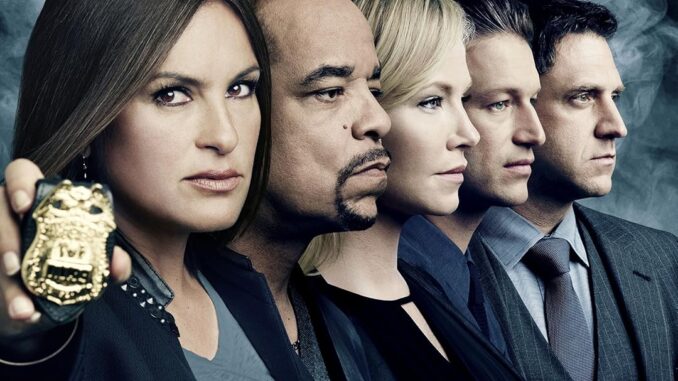
The Unflinching Gaze: SVU and the Evolving Tapestry of Justice in the New Season
For fans like us, “md07,” Law & Order: Special Victims Unit isn’t just a show; it’s a bedrock, a sometimes-uncomfortable but always-essential mirror held up to the darkest corners of human experience. For twenty-five seasons and counting, Olivia Benson has been our unwavering moral compass, guiding us through a landscape of trauma, resilience, and the relentless pursuit of justice. The new season, far from showing signs of age, proves that SVU remains as vital, relevant, and gut-wrenching as ever, boldly confronting the evolving complexities of crime while anchoring itself in the profound human stories at its core.
What makes SVU endure for us, the devoted? It’s the show’s genius for “ripping from the headlines” not just the sensationalized facts, but the underlying societal anxieties and systemic failures that breed these crimes. The new season doubles down on this legacy, illustrating a keen awareness of current events and the shifting dynamics of power, technology, and vulnerability. We’re no longer just dealing with the “stranger in the alley” (though those cases still, tragically, exist); the threats have become more insidious, more technologically advanced, and often, closer to home.
Take, for instance, the illustrative cases that have defined the nascent episodes of this season. We’ve seen a poignant exploration of AI-generated deepfakes and image manipulation, particularly as it weaponizes against young women and public figures. The narrative doesn’t just present the crime; it delves into the psychological warfare, the erosion of trust, and the desperate struggle of victims to reclaim their identity and narrative in a world where digital footprints are indelible. The squad grapples with the novel legal precedents, the difficulty of tracing perpetrators across international borders, and the chilling implications for consent in the digital age. Benson’s fury, tempered by her experience, is palpable as she navigates these uncharted waters, reminding us that even with advanced tech, the core violation remains devastatingly human.
Another compelling illustration emerges from cases touching on the nuanced and often overlooked realm of coercive control within relationships and institutions. This season has deftly portrayed situations where physical violence might be absent, but the psychological manipulation, financial abuse, and emotional gaslighting are just as destructive, leaving victims isolated and disbelieving of their own reality. One particularly resonant arc involved an athletic coach exploiting a position of trust, not through overt assault, but through a slow, insidious grooming process that left a cohort of students feeling responsible for their own prolonged victimhood. Carisi, as ADA, has found his stride in these narratives, articulating the complex legal definitions and advocating for a broader understanding of “consent” and “assault” that extends beyond the purely physical. His impassioned arguments in court become crucial illustrations of how the law must evolve to protect those whose trauma doesn’t fit neatly into traditional categories.
Furthermore, the new season isn’t shying away from the intersection of mental health crises and criminal behavior, both on the part of victims and, occasionally, perpetrators. We’ve seen cases where trauma-induced psychosis or untreated severe mental illness plays a significant role, forcing the squad to navigate ethical dilemmas around culpability, care, and the often-overburdened social services system. These cases illustrate the fragile line between victim and perpetrator, compelling us to consider the systemic failures that push individuals to breaking points, while never losing sight of the harm inflicted. Fin Tutuola, ever the pragmatist, grounds these narratives with his streetwise wisdom and profound empathy, reminding us that every case is a mosaic of human desperation and systemic gaps.
What ties these illustrative cases together is not just their topicality, but their ability to push the envelope on our understanding of justice itself. The new season challenges us to redefine what “sexual assault” means in an age of digital violation and psychological manipulation. It compels us to look beyond the immediate act and understand the long shadow of coercive control. And it forces us to grapple with the societal structures that either enable or prevent healing.
For us, the “md07” collective, Law & Order: SVU remains a vital, if often uncomfortable, weekly appointment. The new season, through its unflinching gaze at deepfakes, coercive control, and the intersection of mental health and crime, isn’t just telling stories; it’s illustrating the ongoing battle for justice in an ever-more complex world. Olivia Benson, still our North Star, continues to lead her squad, and us, through the darkness, proving that even after a quarter-century, the pursuit of justice, in all its evolving forms, is a narrative that never loses its urgent resonance.
